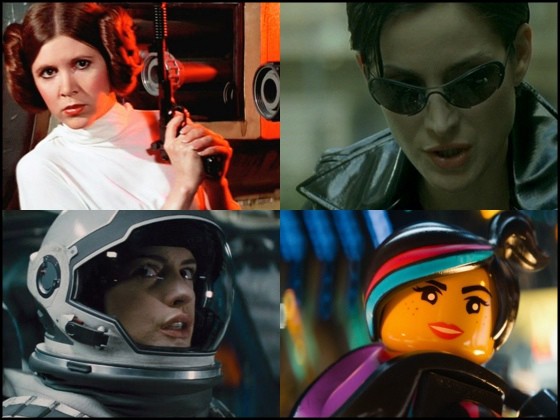The topic of women’s representation on the silver screen — as in: it’s terrible — is having a moment this year. A big one. Everyone seems to be talking about it, like Maggie Gyllenhaal revealing how she was told she is, at 37 years of age, too old to play a love interest to a 55-year-old man. But then there’s also New York Times critics A.O. Scott and Manohla Dargis wondering — far too optimistically, I think — whether “feminism conquered Hollywood” because there have been a few big-budget box-office successes this year featuring central characters who are girls or women.
But just how do we measure how well — or how poorly — women are represented onscreen? We have the Bechdel Test, of course, which asks three questions: 1) Does a movie feature two female characters with names 2) who talk to each other 3) about something other than a man? But comics writer and artist Alison Bechdel created the “test” as a joke — a way to demonstrate how bad women’s representation is by showing how many films fail a test that should be ridiculously easy to pass. The Bechdel Test’s main value is in demonstrating how often Hollywood gets things badly wrong when it comes to women. But it doesn’t tell us a whole lot more than that.
So late last year, I developed the Where Are the Women? test for determining, down to a nitty-gritty level of detail, how girls and women are represented in any given film. I think of it as a nuclear-powered Bechdel Test. You can see the full criteria I apply to a film here, but the overall gist is concerned with whether women characters get to change and grow as people over the course of a story, or whether they play merely static supporting roles to men who go on personal journeys. So a movie gets mega points for having a female protagonist — that is, a central character who affects the action of the story, and who emerges a different person by the end — and a film loses lots of points for women characters who are primarily defined as mothers of children or lovers of men. A film can earn a lot of points for depicting women in positions of authority, and a movie can lose a lot of points if women are barely characters at all but simply decorative objects for the audience (think: Anonymous Bikini-Clad Babe).
It’s also important to see female characters in central roles that do not reinforce stereotypes. That’s true for male protagonists, too! Two of the female-centric movies that the Times’ Scott and Dargis were talking about as potential game-changers for Hollywood are “Cinderella” and “Fifty Shades of Grey,” but neither of these are positive depictions of women. “Positive” doesn’t mean that female protagonists have to be noble paragons, but it does mean they should be characters who drive the plot instead of being pushed around by it. Cinderella and Anastasia Steele, on the other hand, are meek submissives who give in, acquiesce and bend over (sometimes literally!) for other (male) characters who are more powerful. They do not represent progress.
Maybe when we reach parity, and half of all movie protagonists are female — and in the first half of of 2015 in the U.S., fewer than 25 percent of films had female protagonists — there will be room for women who are less than “strong.” But we’re nowhere near there yet.
MaryAnn Johanson is a online film critic, posting criticism at FlickFilosopher.com since 1997. Her work also appears in numerous online and print outlets in the U.S. and the U.K.







